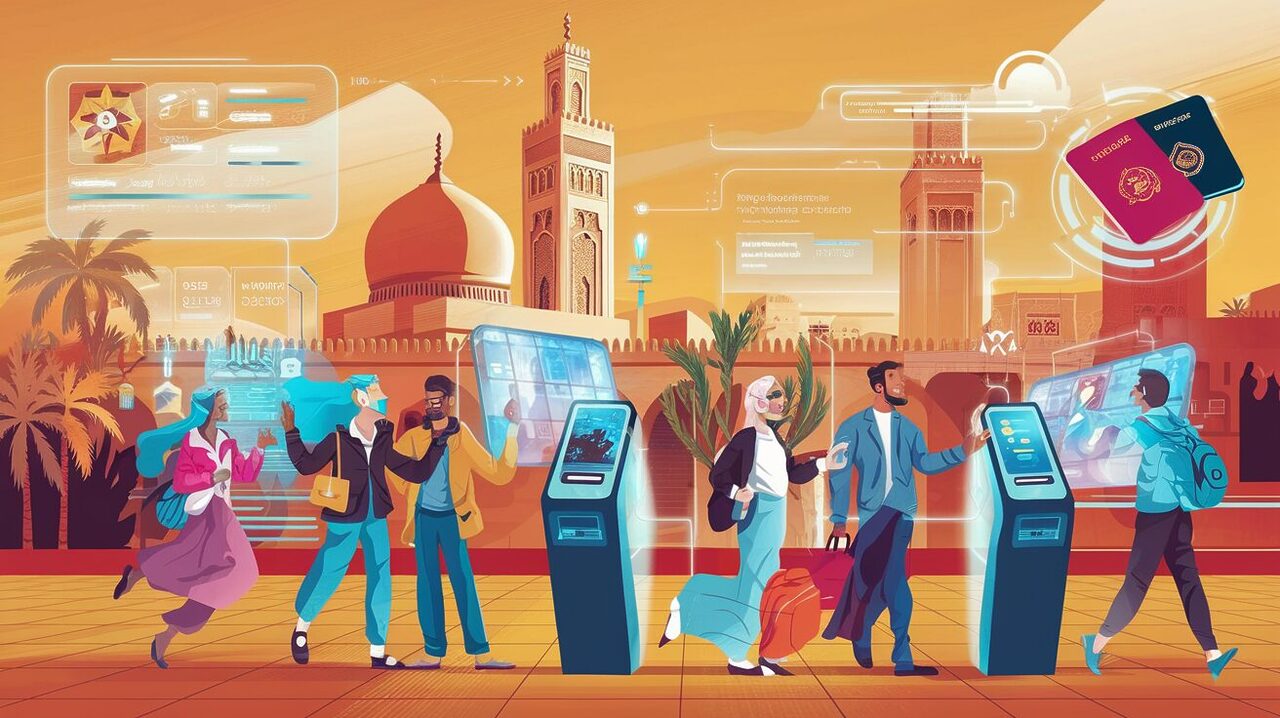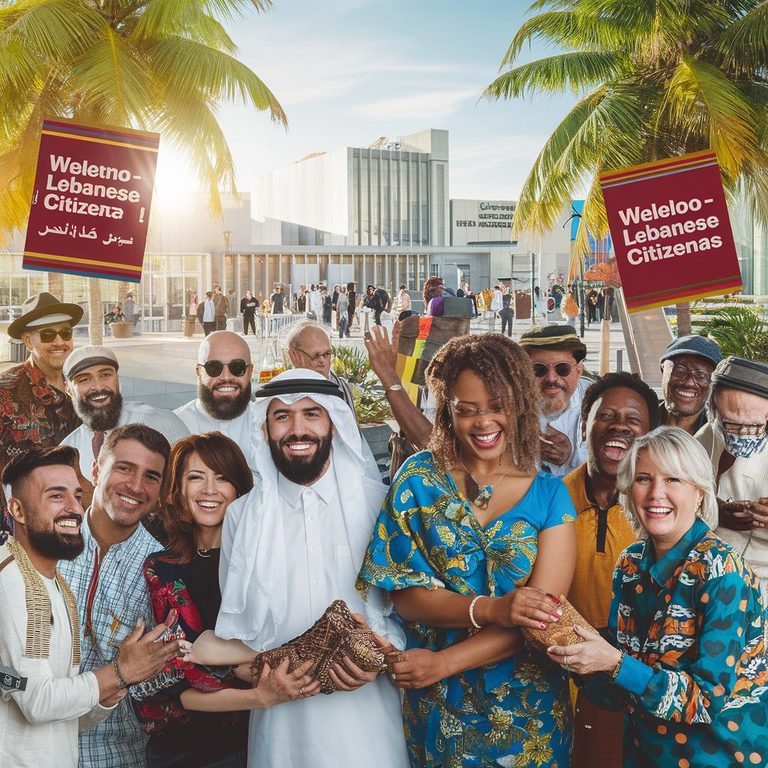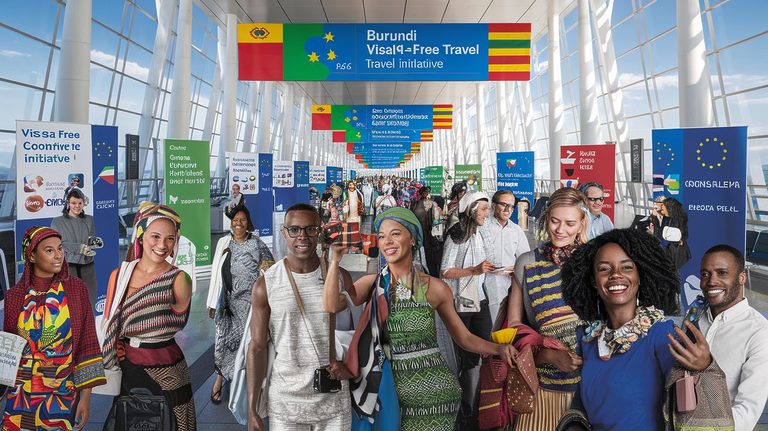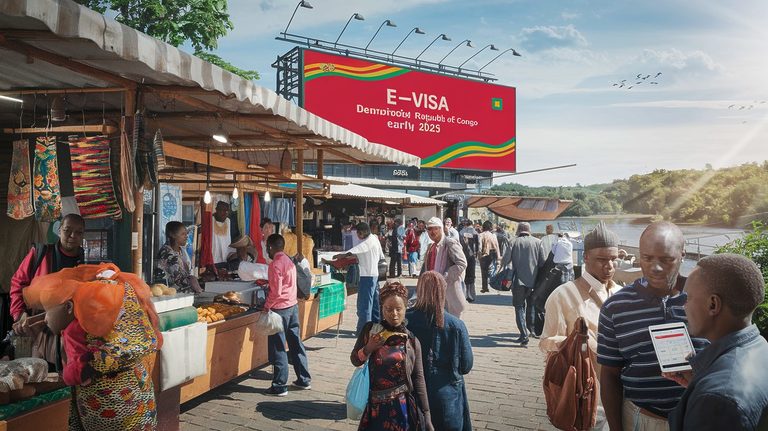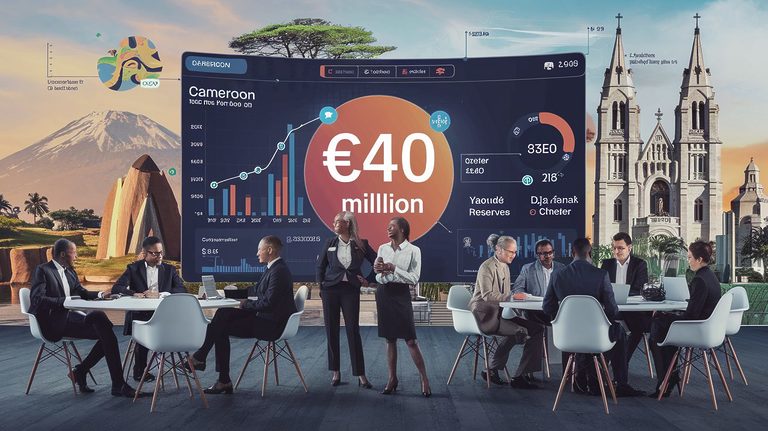The introduction of the e-visa system in Morocco has revolutionized the way travelers access this captivating destination. Launched in July 2022, it has seen the processing of nearly half a million applications within three years, showcasing its effectiveness in modernizing the visa application process. With an increase of almost 187,900 applications in the third year alone, the e-visa serves not just as a facilitator for tourists but also as a catalyst for the growth of vibrant tourism in Morocco. By streamlining entry procedures and adapting to contemporary travel demands, Morocco positions itself prominently on the global tourism map, attracting visitors from diverse nationalities and enhancing its international appeal.
The launch of the electronic visa service (e-visa) by Morocco in July 2022 has proven to be a significant step toward modernizing the country’s travel experience. In just three years, nearly half a million e-visa applications have been processed, showcasing a spike in tourism that highlights Morocco’s appeal as a premier destination. This article delves into the mechanics of the e-visa system, its eligibility criteria, and its impact on tourism and international events.
The E-visa System Explained
The electronic visa (e-visa) can be obtained through two primary options from the DFAIT Portal: the standard visa, which is issued within 72 hours, and the express visa, available within 24 hours. This streamlined process has made it easier for travelers to gain access to Morocco, eliminating the complexities often associated with traditional visa applications. The modernization of visa procedures serves as a catalyst for increased travel and tourism, allowing visitors to experience Morocco with fewer barriers.
Eligibility and Visa Requirements
Before embarking on their journey, citizens from certain countries, such as Benin, Brunei Darussalam, Cambodia, Guatemala, India, Israel, Jordan, Laos, Thailand, and Vietnam, must secure an electronic travel authorization. While the e-visa service is available to 118 nationalities, many of them are exempt from visa requirements for short stays of 30, 60, or 90 days. Countries such as those in Europe, Asia, America, and Africa enjoy greater freedom in travel to Morocco. For those who plan to extend their stay, it is critical to verify their eligibility for an e-visa beforehand.
The Impact on Tourism Growth
The overwhelming majority of e-visa requests (approximately 94.1%) pertain to tourism. This percentage confirms Morocco’s status as a sought-after tourist destination. The remaining 5.9% is dominated by requests for business travel. This trend demonstrates Morocco’s vibrant tourism sector and its capacity to attract visitors from around the world.
International Events and Business Travel
In addition to increasing tourist visits, the e-visa system has provided crucial support for organizing major international events, enhancing Morocco’s reputation further on the global stage. Noteworthy gatherings like the IMF and World Bank Annual Meetings in Marrakech in 2023 included participants from 109 nationalities. Upcoming events, such as Gitex Africa in Morocco for 2024 and 2025, with inclusivity for participants from 118 and 117 nationalities respectively, emphasize the country’s hospitality and commitment to facilitating international collaboration.
Future Prospects and the World Cup 2030
Looking ahead, the launch of the official e-visa platform is poised to welcome an influx of travelers for future international sporting events, notably the World Cup co-hosted by Morocco in 2030. This promising prospect underscores Morocco’s ambition to position itself as a prime destination for global tourism, bolstered by its dynamic tourist industry and the organizational capacity for international events.
Interestingly, a recent proposal from the Moroccan parliament regarding a potential visa requirement for European citizens has ignited discussions, but as of now, the authorities have yet to clarify this matter. Travelers should stay informed about any developments that may arise related to visa policies.
As the e-visa system modernizes and digitizes the visa application process, it significantly enhances the ability of travelers to enter the country, thus amplifying Morocco’s allure. For more information on visa applications and the nuances of international travel, consider exploring resources available at Travel Red Tape, where you can compare visa regulations for your next adventure.
For those interested in upcoming visa changes, you can follow developments regarding Vietnam’s visa exemption initiative or the official introduction of e-visas in the Democratic Republic of Congo.
The modernization efforts like those seen in the Moroccan e-visa system show a clear commitment to expanding travel opportunities in a rapidly globalizing world. Similar trends can be observed in countries like Nigeria, which has recently introduced an e-visa and arrival card system. Additionally, India’s Surat International Airport recently commenced operations as a new gateway for e-visa travelers, symbolizing a surge in worldwide connectivity and travel flexibility.
- Electronic Visa Service Launch: July 2022
- Applications Processed: Nearly 500,000 in three years
- Yearly Increase: 187,900 applications in the third year
- Application Methods:
- Standard Visa: Issued within 72 hours
- Express Visa: Issued within 24 hours
- Standard Visa: Issued within 72 hours
- Express Visa: Issued within 24 hours
- Eligible Countries: 118 nationalities, including Benin, India, and Vietnam
- Tourism Demand: 94.1% of requests for tourism purposes
- Business Travel: Represents 5.9% of total applications
- International Events Support:
- IMF and World Bank Meetings 2023
- Gitex Africa 2024 and 2025
- IMF and World Bank Meetings 2023
- Gitex Africa 2024 and 2025
- Modernization of Visa Process: Facilitates traveller entry
- Future Events: World Cup 2030 co-hosted by Morocco
The electronic visa (e-visa) service launched by Morocco in July 2022 has transformed the visa application process, facilitating the entry of travelers into the country. In just three years, nearly half a million applications were processed, with a significant surge of 187,900 applications in the third year alone. This system caters to 118 nationalities, offering both standard and express visa options, while a proposal for a new visa requirement for European citizens is under discussion. The majority of e-visa applications—94.1%—are for tourism, underscoring Morocco’s appeal as a leading destination. This initiative supports global events, including the upcoming World Cup 2030, highlighting Morocco’s commitment to enhancing its tourist industry through modernization.
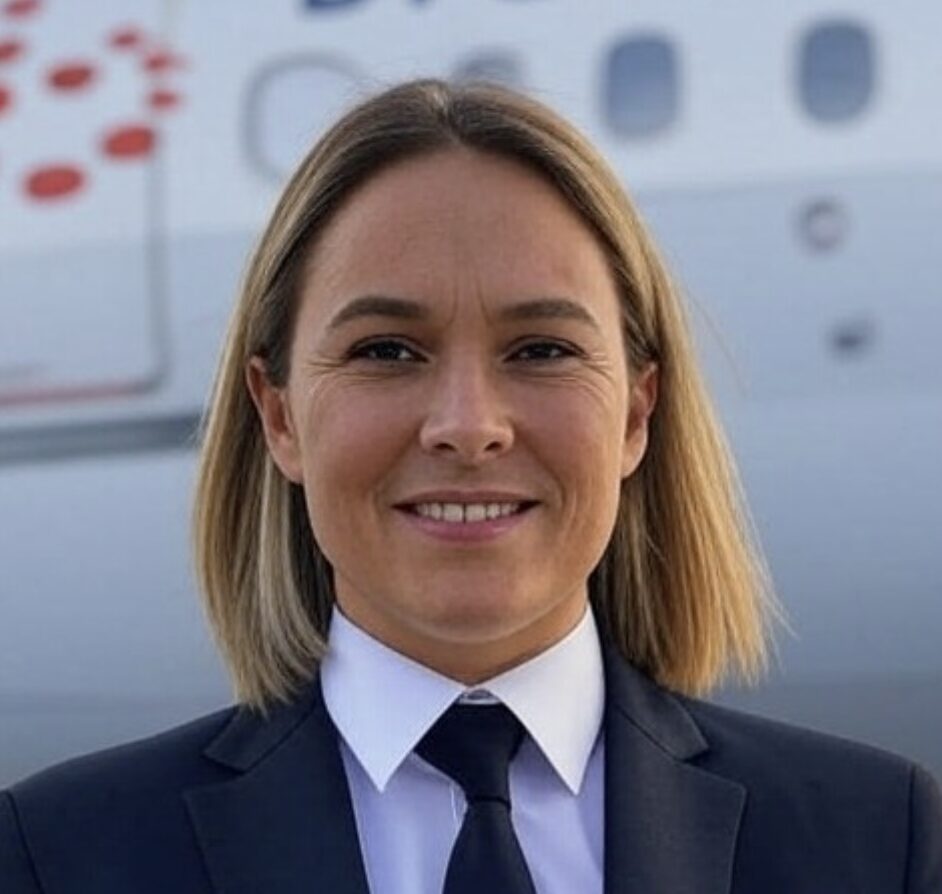
Hello! I’m Elisa, a 45-year-old travel companion with a passion for exploring new places and cultures. With years of travel experience under my belt, I thrive on creating memorable journeys for my clients. Let’s embark on an adventure together!

